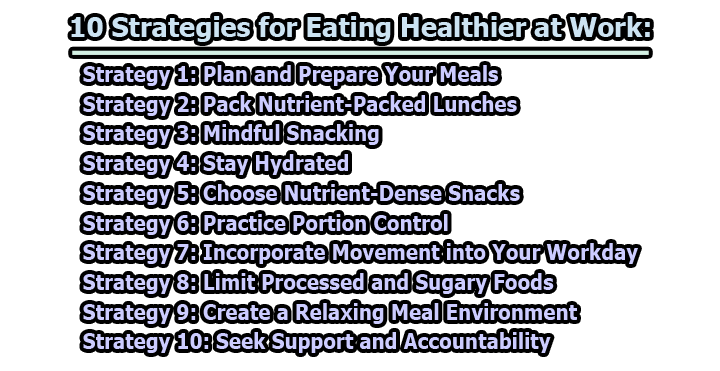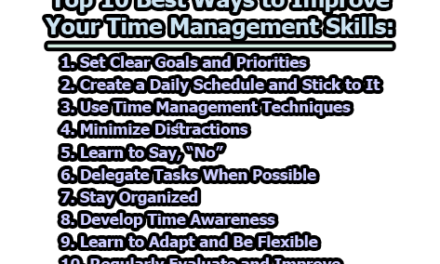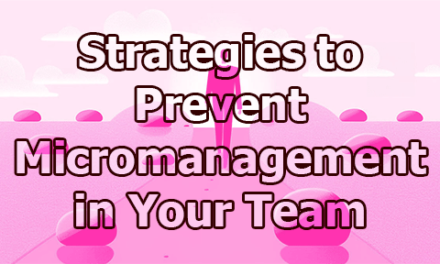10 Strategies for Eating Healthier at Work:
In today’s fast-paced and demanding work environments, maintaining a healthy diet can often be challenging. However, the impact of our food choices on our productivity, focus, and overall well-being cannot be overstated. A well-balanced diet not only nourishes our bodies but also supports our mental and emotional health. By incorporating healthier eating habits into our workday, we can fuel ourselves with the nutrients needed to excel in our professional roles. In this comprehensive guide, we will delve into 10 effective strategies for eating healthier at work, ensuring you stay energized, focused, and satisfied throughout your work hours.
Strategy 1: Plan and Prepare Your Meals
Meal planning is a cornerstone of healthy eating. Dedicate time during the weekend to create a well-thought-out meal plan for the upcoming workweek. Consider your nutritional needs and choose a variety of recipes that incorporate lean proteins, whole grains, fruits, and vegetables. Preparing meals in advance ensures you have nutritious options readily available, reducing the likelihood of reaching for unhealthy fast food or snacks.
Strategy 2: Pack Nutrient-Packed Lunches
Lunch is a crucial opportunity to refuel your body and mind for the afternoon ahead. Instead of settling for bland or unappetizing options, focus on packing nutrient-dense lunches that provide sustained energy. Opt for a mix of lean proteins, healthy fats, and complex carbohydrates. A salad with grilled chicken, avocado, and quinoa or a whole-grain wrap with plenty of colorful vegetables are excellent choices.
Strategy 3: Mindful Snacking
Healthy snacking is an integral part of maintaining energy levels and preventing excessive hunger. Keep a selection of nutritious snacks, such as raw nuts, cut fruits, or Greek yogurt, at your desk or in the office kitchen. When snacking, practice mindfulness and savor the flavors and textures of the food. Avoid mindless munching while working, as it may lead to overeating and hinder your concentration.
Strategy 4: Stay Hydrated
Proper hydration is fundamental for optimal performance and cognitive function. Aim to drink plenty of water throughout the day to stay hydrated. Keep a reusable water bottle at your desk as a visual reminder to drink water regularly. Avoid excessive consumption of sugary drinks and limit your caffeine intake, as they can lead to dehydration and energy crashes.
Strategy 5: Choose Nutrient-Dense Snacks
Instead of reaching for unhealthy snacks, opt for nutrient-dense alternatives to keep your energy levels stable and maintain focus. Carrots and hummus, rice cakes with almond butter, or air-popped popcorn are excellent choices. These snacks provide essential nutrients without the added sugars and unhealthy fats found in many processed snacks.
Strategy 6: Practice Portion Control
Eating healthy also involves practicing portion control. Be mindful of the quantity of food you consume during meals and snacks. Overeating, even with healthy foods, can lead to sluggishness and reduced productivity. Use smaller plates or containers for your meals to encourage appropriate portion sizes.
Strategy 7: Incorporate Movement into Your Workday
Integrating short bursts of movement into your workday can promote better digestion and boost energy levels. Take short walking breaks, perform desk exercises, or stretch your body to combat the effects of prolonged sitting. Physical activity enhances blood circulation and oxygen flow to the brain, leading to improved focus and cognitive function.
Strategy 8: Limit Processed and Sugary Foods
Minimize your consumption of processed and sugary foods, as they can lead to energy spikes and crashes. These foods provide little nutritional value and often leave you feeling lethargic. Opt for whole foods that offer sustained energy, such as whole grains, lean proteins, and fresh fruits and vegetables.
Strategy 9: Create a Relaxing Meal Environment
When eating at work, find a quiet and comfortable space where you can enjoy your meals without distractions. Avoid eating at your desk while working or during meetings. A dedicated lunch break in a peaceful environment allows you to focus on your food, recognize fullness cues, and enjoy a more satisfying meal.
Strategy 10: Seek Support and Accountability
Maintaining healthy eating habits can be challenging, especially in a busy work environment. Seek support from your colleagues or start a workplace wellness program to encourage healthier choices among employees. Consider partnering with a coworker to share meal prep ideas and hold each other accountable for sticking to healthy eating goals.
In conclusion, prioritizing healthy eating at work is a powerful way to optimize productivity, focus, and overall well-being. By implementing these ten strategies, you can make informed food choices, maintain sustained energy levels, and enhance your performance throughout the workday. Remember that small, mindful changes in your eating habits can lead to significant improvements in your work life. Embrace these healthier eating practices and experience the positive impact they have on your productivity and personal well-being. With proper nourishment, you can excel in your professional roles while maintaining a healthy work-life balance.
Frequently Asked Questions [FAQs]:
Why is it important to eat healthier at work?
Eating healthier at work is crucial because it directly impacts our performance, focus, and overall well-being. A balanced diet provides the energy and nutrients needed for sustained productivity, improved cognitive function, and enhanced memory retention. Healthy eating also supports emotional well-being by reducing stress and anxiety, leading to a more positive and focused mindset.
How can eating healthier at work improve productivity?
Eating healthier at work can improve productivity in several ways. Nutrient-rich foods supply the brain with the necessary fuel to function optimally, leading to better concentration, problem-solving skills, and decision-making abilities. Stable blood sugar levels from healthy eating prevent energy crashes and mood swings, ensuring consistent performance throughout the day.
What are some practical strategies for eating healthier at work?
There are several practical strategies for eating healthier at work:
- Plan and prepare your meals in advance.
- Pack nutrient-packed lunches with a mix of proteins, healthy fats, and complex carbohydrates.
- Choose nutrient-dense snacks like raw nuts, fruits, and yogurt.
- Stay hydrated by drinking plenty of water throughout the day.
- Practice portion control to avoid overeating.
- Incorporate movement into your workday with short walking breaks or desk exercises.
- Limit processed and sugary foods in your diet.
- Create a relaxing meal environment away from your desk to focus on eating mindfully.
- Seek support and accountability from colleagues to maintain healthy eating habits.
How can healthy eating impact my mood and stress levels at work?
Healthy eating positively impacts mood and stress levels at work. Nutrient-rich foods can help stabilize blood sugar levels, preventing mood swings and reducing stress. Foods rich in omega-3 fatty acids, such as fish, have been linked to better mood regulation. Additionally, a well-balanced diet supports the production of neurotransmitters like serotonin, which plays a key role in promoting feelings of well-being and happiness.
Can eating healthier at work improve my sleep quality?
Yes, healthy eating can improve sleep quality. A balanced diet provides the necessary nutrients for optimal sleep patterns. Avoiding excessive caffeine and sugary foods, especially close to bedtime, can prevent disruptions in sleep. Additionally, consuming foods high in tryptophan, such as turkey, can promote the production of melatonin, a hormone that regulates sleep.
How can I resist the temptation of unhealthy snacks at work?
Resisting unhealthy snacks at work can be challenging, but there are strategies to overcome temptation. By planning and packing nutritious snacks in advance, you can avoid reaching for unhealthy options. Creating a supportive work environment, where healthy snacks are readily available, can also encourage better eating choices. Practicing mindfulness and recognizing triggers that lead to unhealthy snacking can help you make conscious decisions about what you eat.
How can I encourage my colleagues to eat healthier at work?
Encouraging healthy eating among colleagues can be achieved through various means:
- Organize workplace wellness programs that promote healthy eating habits.
- Share healthy recipes and meal prep ideas with coworkers.
- Set up a designated space for healthy snacks in the office.
- Lead by example and demonstrate your commitment to healthy eating.
- Engage in team challenges focused on nutrition and wellness.
Can eating healthier at work help with weight management?
Yes, eating healthier at work can contribute to weight management. A balanced diet that includes whole foods, lean proteins, and ample fruits and vegetables can help regulate appetite and prevent overeating. By avoiding sugary and high-calorie snacks, individuals can maintain a healthier weight and promote better overall health.
How can I maintain healthy eating habits when working long hours?
Maintaining healthy eating habits during long work hours requires planning and preparation. Pack nutrient-dense meals and snacks to avoid relying on unhealthy fast food options. Incorporate short breaks for movement and physical activity to stay energized. Stay hydrated and avoid excessive caffeine intake, as it can disrupt sleep patterns.
Can healthy eating at work improve my overall work-life balance?
Yes, healthy eating at work can contribute to a better work-life balance. By providing your body with the nutrients it needs, you can boost productivity and efficiency, leading to more accomplished workdays. Improved energy levels and reduced stress allow you to enjoy more quality time outside of work, fostering a healthier work-life balance.

Library Lecturer at Nurul Amin Degree College










